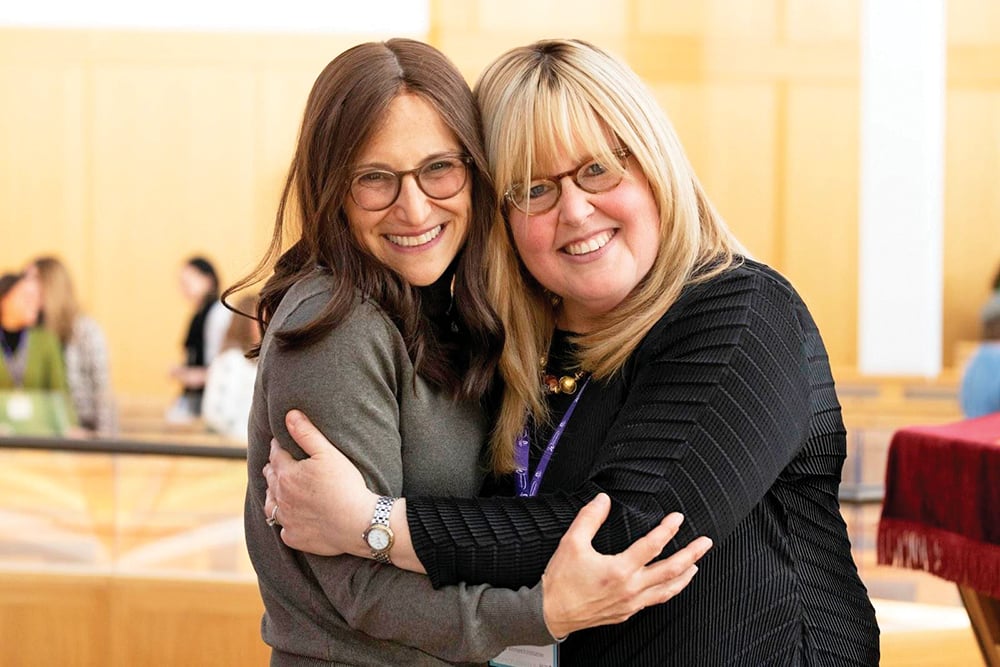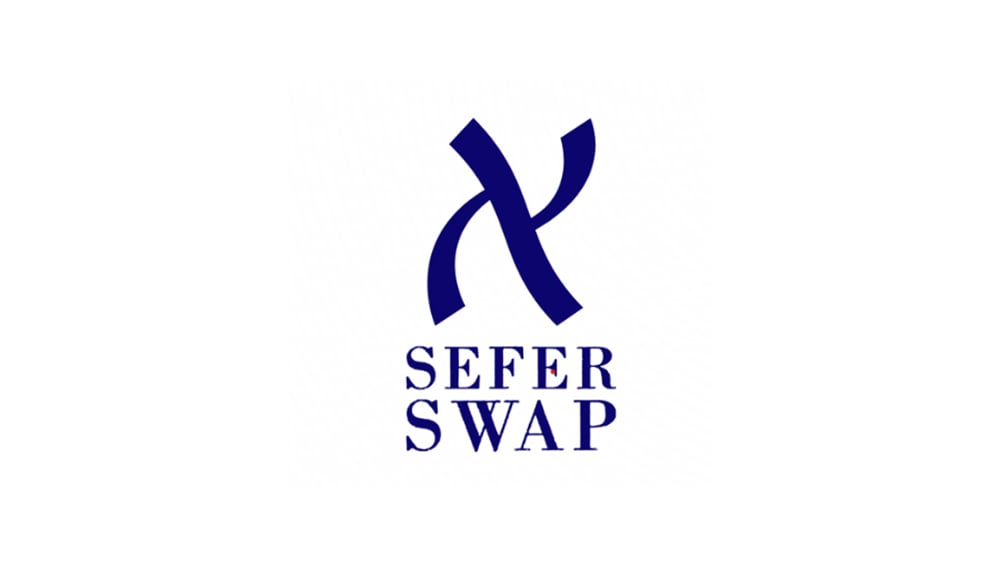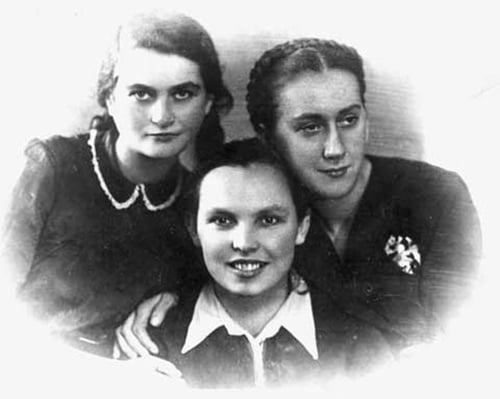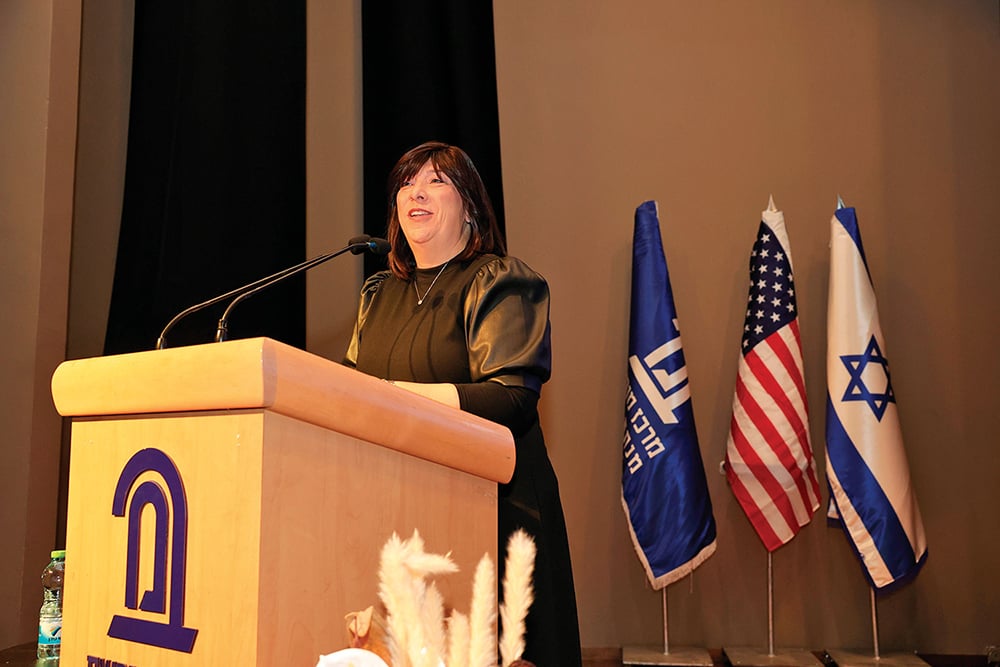
(Courtesy of OU) Between juggling family, work, and self-care, some women may find it challenging to prioritize daily Torah study. Thanks to the OU Women’s Initiative’s Torat Imecha Nach Yomi Program, 15,000 women worldwide, from 28 countries and 38 U.S. states, have committed to daily Torah study since the program’s inception in 2020. Now in its third cycle, participants will begin learning Sefer Tehillim on Shabbat, February 15.
OU Women’s Initiative Founding Director Rebbetzin Dr. Adina Shmidman believes the launch of Sefer Tehillim presents the perfect opportunity for those wishing to join this meaningful program, which spans a two-year cycle.
“Joining Nach Yomi midstream is challenging,” said Rebbetzin Shmidman. “Tehillim is a very accessible point in the cycle. The learning of the sefer spans 150 days, so if you aren’t sure you can commit to learning the entire two-year Nach Yomi cycle, you can try the program for 150 days, which is, in itself, a tremendous accomplishment. If you can’t keep it up, or feel the program isn’t for you, if you’ve learned even one perek, you’ve gained.”
The OU Women’s Initiative aims to create and promote programming centered on Torah study, community leadership, and spiritual, personal, and professional development for women of all ages. When Rebbetzin Shmidman launched the department in 2017, Nach Yomi had already been running successfully since 2008 under the leadership of OU Torah Content Editor Rabbi Jack Abramowitz. Previously taught exclusively by men, the OU Women’s Initiative relaunched the program in January 2020 under the Torat Imecha umbrella, with the goal of creating a space for women educators and learners to share insights on Nach.
The beauty of Nach Yomi program is that it is accessible from anywhere and geared to learners of all levels. Each day at their convenience, Nach Yomi participants download an online shiur on the day’s perek which has been recorded by different female scholars. All shiurim are available via the Torat Imecha app on Apple Podcasts and Spotify. While Nach Yomi largely centers on independent study, there are Zoom siyumim after each sefer, as well as virtual tours of Israeli sites connected to certain perakim. Several communities have also started local chapters and WhatsApp groups to support their learning.
“It’s quite fascinating that everyone is in the same classroom,” reflected Rebbetzin Shmidman. “It gives me tremendous personal joy to see learners’ diverse educational backgrounds, geographic locations, ages and hashkafos. There’s something so exceptional about the fact that everyone can sit and learn together.”
Participants may join the cycle at any time but there are two ideal jump-on points, according to Rebbetzin Shmidman.
“The first inflection point is at the very beginning of each cycle,” she said. “The content spreads very cleanly over a two-year period. We begin with six months of Neviim Rishonim, then six months of Neviim Achronim. The next induction point is Tehillim, at the beginning of Ketuvim. It opens with the universal and timeless messaging of David HaMelech’s experiences and words, which is a remarkable entryway into the study of Nach.”
Approximately 70 female educators have taught Nach Yomi to date, and Rebbetzin Shmidman views the program as a forum to introduce more scholars to the community, which she sees as an OU Women’s Initiative department objective.
“Our educators are bright, accomplished women who model scholarship, comportment and love for Hashem,” she said. “They have moved the program forward in an exceptional way. Having different teachers each cycle is also refreshing because every educator shares her own take and unique insights.”
Torat Imecha Nach Yomi educator Rivka Segal is a leader in adult Jewish education, a sought-after speaker, and the author of “Living Tehillim”, a series aimed at helping readers to connect to Tehillim’s messages and to use them as empowering tools for growth. Segal has been a Nach Yomi educator since the program’s inception, and will be teaching the first book of Sefer Tehillim in the upcoming cycle.
“Tehillim is not just another book of Tanach,” she said. “It is the integration of all of the messages of Chumash and Navi into our lives.”
While Segal emphasizes that Sefer Tehillim is full of timeless lessons, she cites David HaMelech’s ability to see beyond his many challenges, as one meaningful takeaway.
“David HaMelech shows us how we can take adversity in our lives and turn it into a tremendous, eternal power,” she said. “He was able not only to transform his adversity into resilience, but he also gave us the words to say, and the process needed to receive all that Hashem is giving us, so that we can use those brachos to move forward.”
While Tehillim is often recited as an emergency measure, Rebbetzin Shmidman explained the significance of Tehillim in our everyday lives.
“In this post-October 7 world, Tehillim provides us with strength, comfort, and a sense of history,” she said. “There’s a segment of Tehillim where we can see ourselves and our present reality, including the land of Israel being attacked by enemies. I always picture David HaMelech standing with a microphone and reporting live. The words are so real and so relevant today.
But I think we need to train ourselves to recite Tehillim in joyous times as well. The words of Tehillim address the pain that we’re experiencing, but also the nissim we’ve witnessed. Tehillim shouldn’t just be recited in scary times, but also when we’re grateful.”
Shlomit Chambré of Passaic, joined Nach Yomi in January 2024. Following October 7, she signed up in a community chat to recite perek 28 of Sefer Tehillim as part of her daily routine. While Chambré studied Sefer Tehillim in her youth, she did not cover the entire book, and is looking forward to studying it again, from an adult perspective.
“Previously in Nach Yomi, we explored David HaMelech’s life in depth,” she said. “I think it will be incredibly meaningful to be able to revisit his words in Tehillim and to connect them back to the struggles he experienced in Neviim Rishonim. I’m eager to learn the breadth of Sefer Tehillim; in addition to the perakim I know by rote, I will now be able to recite other perakim that speak to me, when davening for others and myself. I’d love to learn which Tehillim are appropriate for specific occasions, such as when one attends a chuppa, visits a kever, or davens on behalf of people needing shidduchim or refuos, for example. I’m really excited to begin this new segment.”
To register for the third Nach Yomi cycle, visit www.ouwomen.org/nach.











